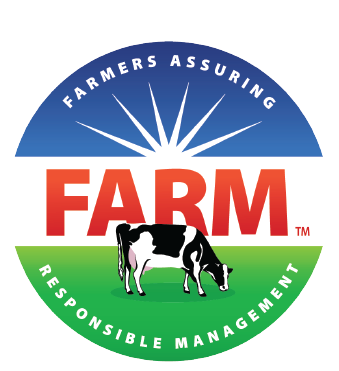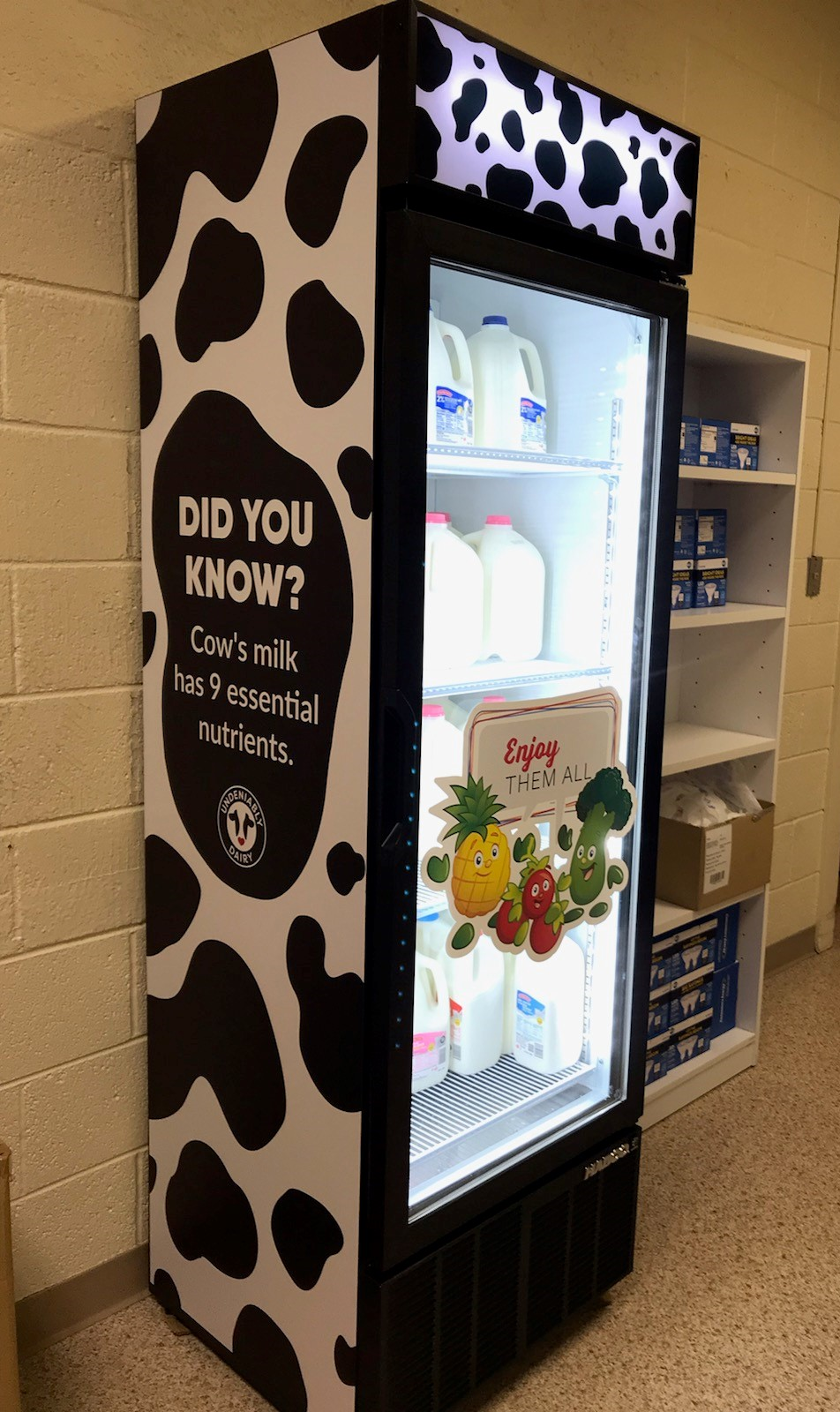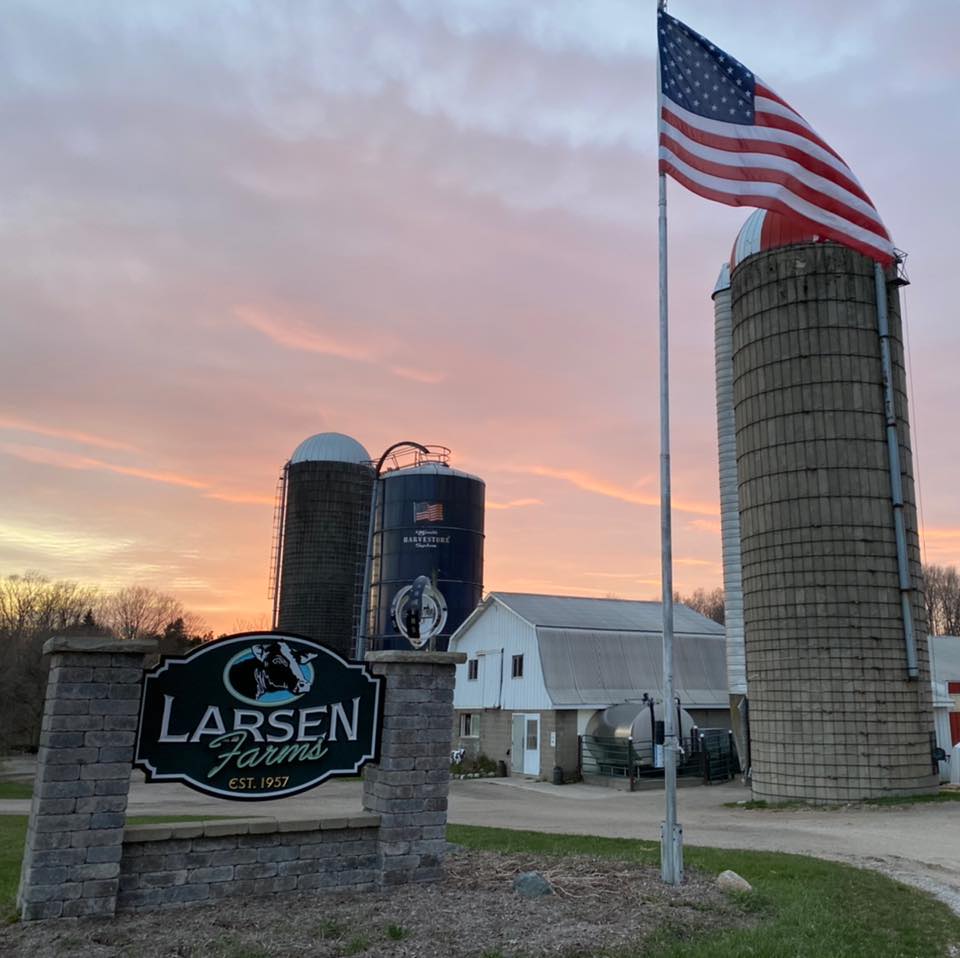- About
- Key Issues
Labor & Rural Policy
Sustainability
Animal Health
Nutrition & Food Safety
Labeling & Standards
- Programs & Resources
- Advocacy
- News
- Membership
- Events
- Stay Informed
- Contact
Larsen Farms
Scottville, MI


Every Monday, usually around 6:30 a.m., Lisa Larsen – sometimes with the help of one of her three daughters, Leta, Leah or Lindsay – drives to the Meijer store in Ludington, MI, loads 24 gallons of milk into her Jeep Cherokee, and heads 20 miles east to the Caritas Food Pantry at St. Mary’s Catholic Church in Custer. The pantry is open Mondays and Wednesdays, noon until 2, and the fresh milk is among the most popular items.
“We have to deliver regularly because of the shelf life, so we’re building our muscles up,” said Larsen. But the weekly journey is more than that. For Larsen, it’s a chance to help her community and boost nutrition for families that may not have had the same taste for milk back when the pantry only offered powdered varieties. And it’s another part of how dairy farmers in Michigan and nationwide are helping other families in rural and urban areas stay nourished in unpredictable times.
Larsen Farms is located just off the shores of Lake Michigan in the west-central part of the state. Burke and Lisa Larsen, third generation farmers, fully took the reins of the farm in 2004. What began with 13 cows in 1957 is about 1,300 today, with 650 milking cows and another 650 calves and youngstock in the herd. Burke and Lisa’s three adult daughters are now all active on the farm as well.
As the herd has grown, so has the farm’s importance to the community. Dairy is a critical part of rural Michigan’s economy — it’s also become even more crucial to populations that struggle to meet nutritional needs. Meeting those needs is what motivated the Larsens to work with Meijer and the United Dairy Industry of Michigan (UDIM) to begin the fluid-milk donations – building a connection to the dairy consumers who benefit from products often created by farms not far away.
The idea for fresh milk at the Caritas Food Pantry began years ago, when Larsen was working as a teacher full time and her three daughters were middle school aged. Burke Larsen learned about grants from UDIM that could fund a cooler for the pantry to store liquid milk, providing a fresher product than the powdered milk then stocked. The grants are just one of many resources dairy farmers can use to meet the needs of underserved populations, and fits in well with other efforts from Michigan dairy farmers and Michigan Milk Producers Association (MMPA), the largest Michigan-based dairy cooperative, to serve families who use food pantries.

MMPA has been organizing larger-scale donations since 2015, when they worked with Food Bank Council of Michigan and Kroger Co. on 22,000 gallons of milk donations. The next year, the need for milk became even more urgent: Flint, MI became the subject of a federal state of emergency due to the lead contamination of its water supply, and milk was badly needed for its both safety and its nutrition.
MMPA’s program expanded, and since 2015 has supplied 340,000 gallons of milk donated by its members.
And in a sense, that program has even gone nationwide, serving as a model for the Dairy Donation Program championed by Sen. Debbie Stabenow, chair of the Senate Agriculture Committee, that was created via COVID-19-related legislation in 2020. That initiative provides $400 million to partner dairy organizations with non-profit feeding organizations that distribute food to individuals and families.
“I can honestly say it shows where our members and our hearts are connected to the community and our surrounding community members,” said Doug Chapin, MMPA chairman. “It’s important to show the ag community surrounding and supporting the urban community. We will be there every year to satisfy that need.”
At a national level, the numbers can become abstract. Back in Custer, the food pantry could use a bigger cooler.
“I’m constantly looking for more opportunities,” said Lisa Larsen, who said she’s working with MMPA and others to find ways to get a wider variety of dairy products to those who use the pantry. The 24 gallons of milk go fast, and pantry customers would easily take more.
But in the meantime, the Monday morning milk delivery is a way to do what dairy does best – help people through better nutrition.
“They want it, and they love it,” she said. “And it’s important to give.”
